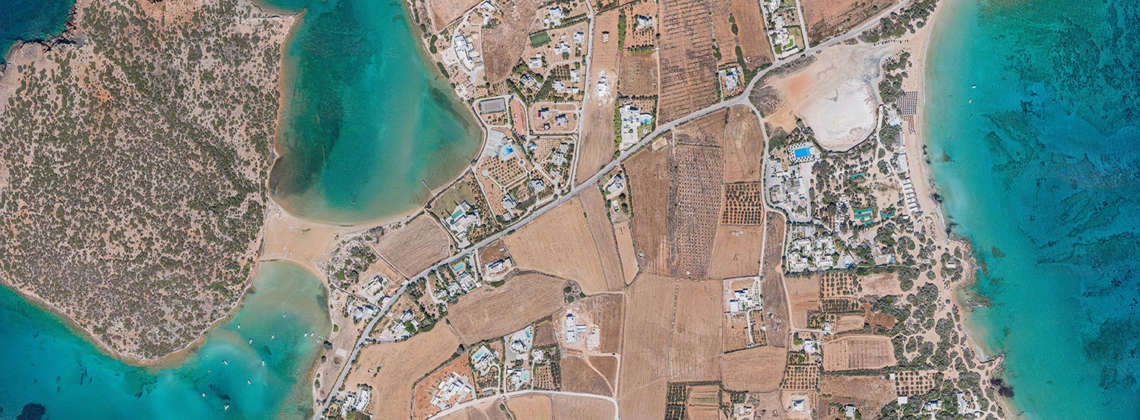
photo digitalparos
A text for the FoPA debate
An uncontrolled development left only to the private initiative ….
Paros has experienced rapid development in the last 20 years. Boosted by its attractiveness to tourists, Paros has, over the previous decades, witnessed an accelerated, disorderly, development, which has led, of course, to a significant increase in the income of society, but at the expense of the overexploitation of its resources, the degradation of its environment and the weakening of its identity.
This has sharpened and amplified the problems that Paros had already been experiencing, namely: water supply, waste water management, waste and its treatment; increasing vehicle traffic not absorbed by the roads; a significant increase in built-up areas, changing landscapes; increasing privatisation of public spaces including natural ones; profound changes in professional practices and occupations, sociological, cultural and ethnic diversification of the population; changes in the age structure; shortages of professional services; inadequate medical supply; a housing crisis for doctors, nurses, teachers, police officers, servers, etc.
More specifically, let us note:
Water supply
Aquifers are exploited more rapidly than they are regenerated, and the desalination of seawater used as a solution is not a panacea
Aquifers are exploited more rapidly than they are regenerated, and the desalination of seawater used as a solution is not a panacea, this technology with its high cost and energy consumption, having harmful effects on the environment by the dramatic salinisation of the areas of emission of residual brines, destroying the sea bed. No effort is made to reduce the consumption and capture of rainwater through public works to enrich the aquifer or to require consumers to collect it individually.
On the other hand, a note should be taken of the willingness of the “Municipal Water Supply and Sanitation Company”, which has been engaged for the past two years in secondary wastewater treatment works, which should lead to their storage and reuse. Similarly, it has already replaced part of the distribution network, which often contained asbestos and suffered from leaks, causing immense losses.
Wastewater management
Many of the island’s homes are not connected to the network, and reuse is practically nonexistent. No obligation of treatment is imposed on the unconnected houses – threatening, in the long run, the quality of the aquifers.
Waste management
Notwithstanding the healthy ambitions of “BlueParos” and a few small local initiatives, waste prevention, reuse, sorting, and recycling are, if not nonexistent, at least very rudimentary. The landfill at Agios Charalambos-Aneratzia, which serves Paros and Antiparos, receives unsorted waste and has been saturated for a very long time, polluting the whole valley. Its water tightness protecting the aquifer is seriously questioned.
The elementary rules of waste management, i.e. ‘Reduce, Reuse, Recycle‘ (3 R), to recover what remains for energy production and not to put anything in dumping grounds, are not respected. There are no giveaways or waste disposal centres where the population could come to deposit no longer-needed consumer items or waste in an orderly, selective way to reuse or recycle them. The return at the end of life of household appliances (refrigerators with polluting refrigerant gases in particular) and other hazardous waste is not supervised, and people need to know where they end up.
The “sorting centre” of Kostos-Asteras (or what passes for one) to which some collections of recyclables are directed is improvised and makeshift, lacking the necessary equipment. The working conditions are deplorable, and it does not have a proper environmental permit. The management of garden and agricultural waste is practically nonexistent.
Sites for sorting rubble, construction waste and debris are improvised here and there without permits, bringing traffic, noise and dust pollution to the neighbourhood. The Municipality makes contracts with some of these illegal operators.
During the tourist season, the rubbish collection services, using old polluting trucks, even with hard work, do not empty the containers’ sites in good time. Thus, many become unclean, with waste dispersed all over the area since, strangely, the rule is to keep the lids of the containers open. The environmental authorities, responsible for enforcing and complying with the explicit laws, are failing their duties.
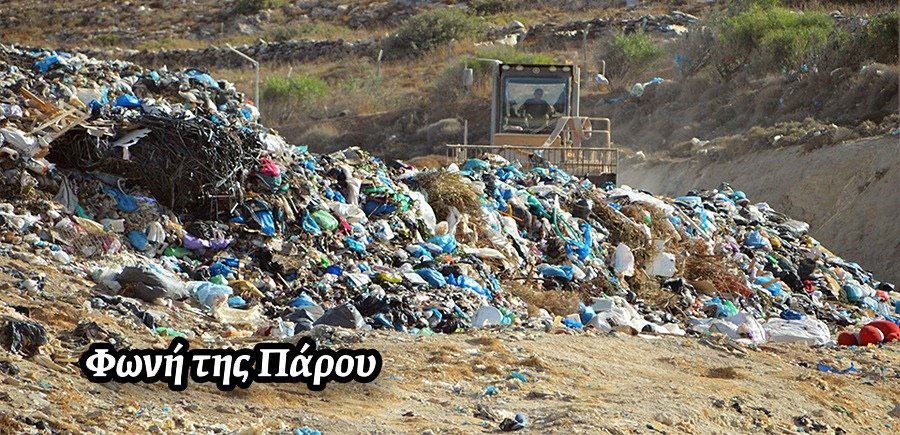
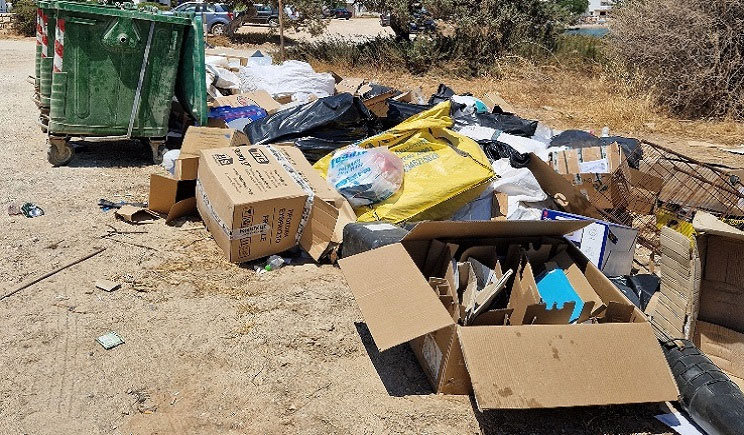
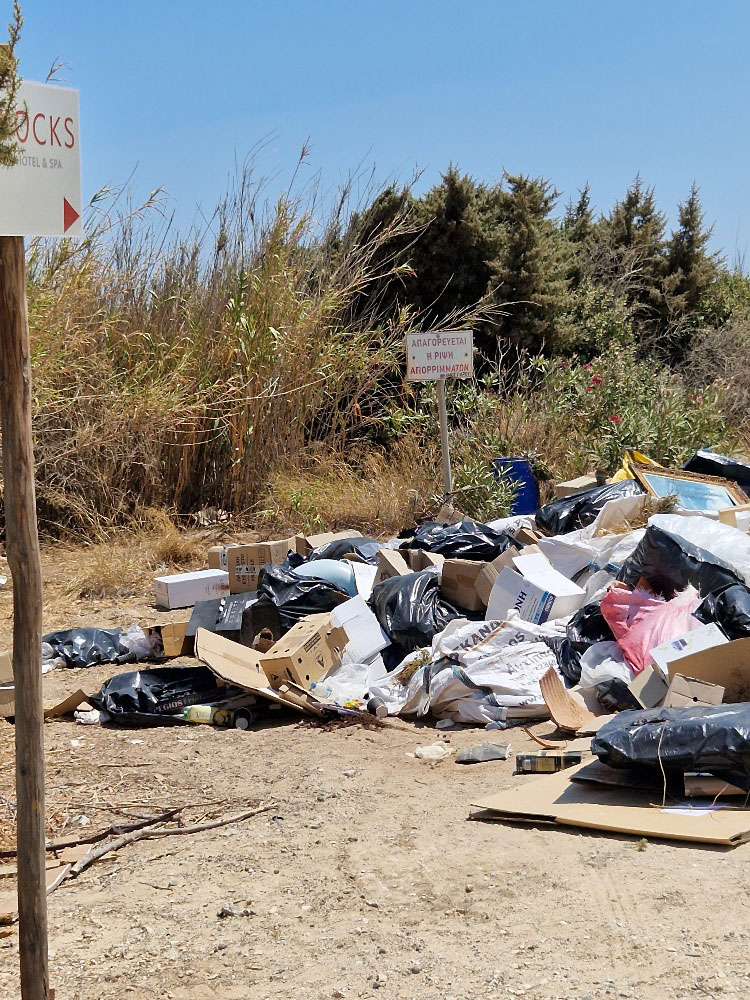
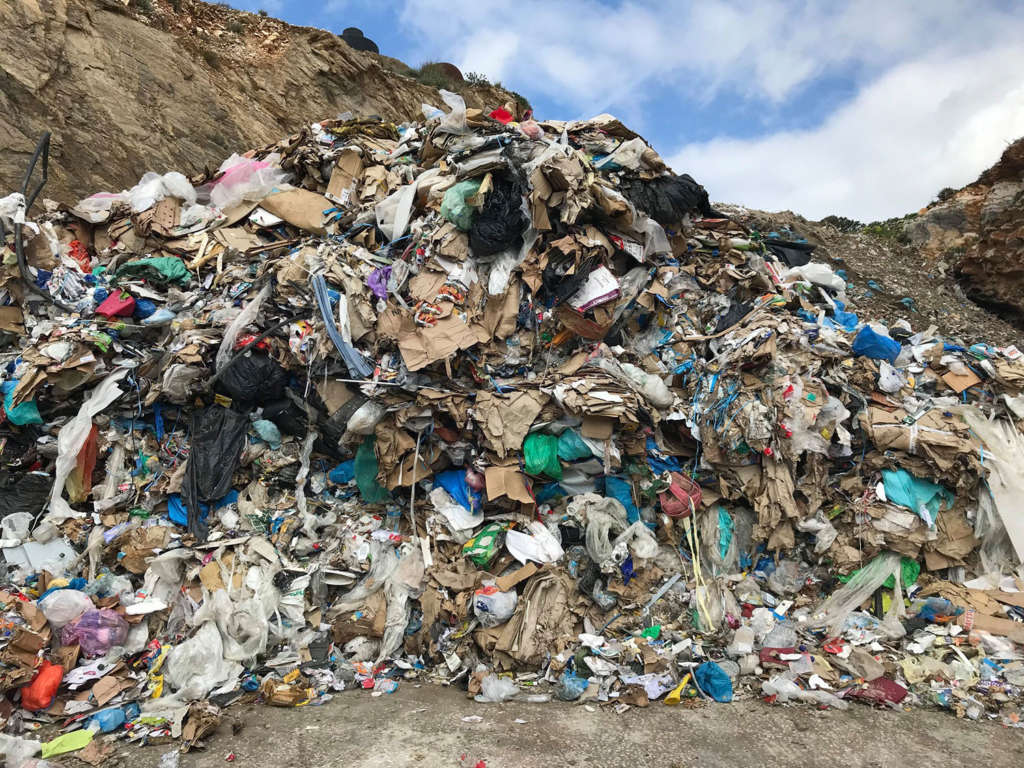
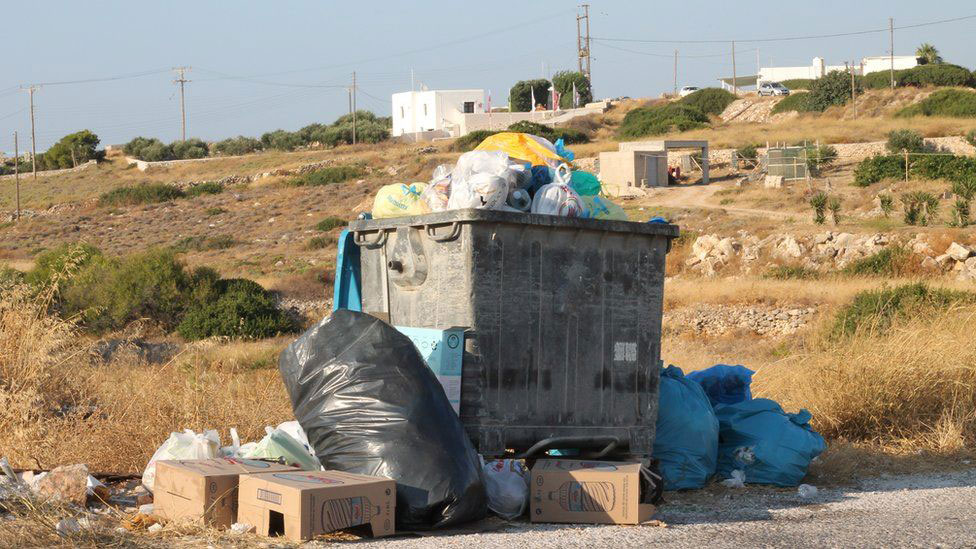
Road traffic
The roads and parking lots in season can no longer absorb the increasing number of vehicles. At the same time, pedestrians and other “soft mobility” users, such as cyclists, are ignored. Driving becomes dangerous, as no adequate speed limits are imposed on the island, and having an accident … becomes fatal when the ambulance is stuck in traffic jams. Vehicles clog up the traditional villages. Apart from a reasonably good public transport system (albeit with slow, oversized buses), taxis are becoming more expensive and overbooked, so there are no alternatives.
And then, apart from a few private initiatives, and despite the Greek law which announces and imposes the mandatory electrification of the car fleet by 2030 (that of taxis in 2025), public measure still needs to be implemented.
Overbuilding
Since 2015, thousands of houses have been built. This pace is not sustainable, and the Council of State has pointed to the need to monitor the island’s capacity to accommodate new construction. Excessive construction outside urban areas, often uncontrolled, alters the Cycladic landscape and biodiversity.
The increasing privatization of the coastline and other public spaces
Abusive operators occupy the beaches. Similarly, paths and other passageways pedestrians are occupied by private restaurants and cafes. As another example, the walking-paths that used to allow people to walk around the island are now often illegally integrated into private properties, sometimes preventing access to the sea.
Inadequate health care provision
Lack of specialists, emergency doctors, operating theatres, gynaecologists, and midwives…
The housing crisis
Existing housing is being exploited for short-term rentals, destroying the supply for seasonal workers and those in the public service sector (medical personnel, teachers, police, etc.)
We face these problems daily, which reduces our quality of life.
This development has been characterised by the weak role played by local and state government representatives and officials and the broad scope left to private initiative. In addition to these increasingly aggravated challenges, there is a crisis of governance; a deficit of public services; an absence of planning and, above all, of procedures for deliberation and consultation with the population which would establish a common project.
Finally, we can point to an insufficient use of European funds to finance the necessary investments (currently to a limited extent present) and one that does not always respect all the rules and procedures.
We believe it is necessary to slow down the pace of economic growth, to promote true sustainability, a circular economy, and improvement in the quality of services and activities. This improvement is the only way to ensure that disposable income is maintained or even increased.
To improve the situation and invigorate the public debate
The launch of the next election campaign to elect a new municipal council could provide an opportunity to identify and prioritise the issues and plan priority actions.
A joint management of Paros and Antiparos would benefit both islands.
Here are some ideas for debate to be conducted by citizen groups during their meetings, information seminars and consultations.
…The inclusion of a heritage tourism offer would give additional value to the main offer and would also allow access to new market segments of higher quality (tourism that generates high revenues and that appreciates and protects the environment and culture). And would force the destination to safeguard its identity!
- The island’s identity, which has made it a favourite mass tourist destination, is being undermined by unmanaged development. Thus, its Cycladic character is destined to disappear irreparably. It is urgent and necessary to transform economic growth and mass tourism by fostering true sustainability, guaranteeing the permanence of the island’s attractiveness by qualitatively diversifying the tourist offer, favouring the promotion of cultural and natural heritage. The inclusion of a heritage tourism offer would give additional value to the main offer and would also allow access to new market segments of higher quality (tourism that generates high revenues and that appreciates and protects the environment and culture). And would force the destination to safeguard its identity!
- The improvement of all kinds of services provided to the population and to tourists necessarily requires a form of regulation (for example, by differentiated taxation, by subsidy, or other means still to be determined) on the use of the real estate stock, ensuring the availability of a quality housing offer at a reasonable price to the professionals (ranging from seasonal workers to tradesmen (builders, electricians), public service workers (police officers, teachers) and other professionals (e.g. doctors) etc.
In the same way, the regulation of short-term rentals can increase the supply of long-term housing. - All the public concerned (residents or second residents) must be involved in the development of projects affecting them and informed transparently, as required by the European Regulation and also the Aarhus Convention, which Greece signed. Consultation with the population, including non-nationals, must precede public debates and decision-making. A democratic culture and a culture of compromise must take root.
- Diversified public transport must improve and support mobility, and “soft mobility” must find its place. Parking spaces must be developed, allowing for the electrification of the car fleet, and walking and cycling must be facilitated and generalised in urban areas, especially in traditional villages. Itineraries on all the islands, reserved for “soft mobility” (pedestrians, cyclists) must be developed. The number of vehicles allowed on the island must be evaluated, and limits imposed.
- The medical care offer must be improved by the reception of quality qualified personnel, by the best collaboration between the existing medical structures, private or public, and by the improvement of the ambulance service.
- The service structures for the population must be maintained and increased. Public services must be developed (post offices, for example) and not abandoned by stealth as is happening at present.
- An environmental task force must be set up, to nudge Paros and Antiparos out of their apathy to clean up everywhere that needs it, using the means made available by Europe as effectively as possible.
- Paros should become a sustainable island in the short or medium term by functioning without greenhouse gas emissions. Otherwise, it will be the chronicle of a death foretold. For this to happen, a program to help convert local businesses must be launched.
- Cultural life must be maintained and diversified throughout the year. There is a need for some reflection to identify priorities. For example, why not reach out to cultural institutions – even academic ones – to establish a presence on the island? How to develop cultural activities throughout the year for specific audiences – young people and the older generation – or cultural activities linked to the economic activities on the island.
The preservation and enhancement of the natural, cultural and archaeological heritage as well as the support of cultural life, can be ensured by the targeted attraction of visitors interested in the history and preservation of the local heritage and culture. - Paros has a particular climate and has the sea and mountains to attract sportsmen and women not only in swimming and water sports, but also for walking, cycling, triathlon, etc. So many possibilities to extend the tourist season outside the hottest months. Support for developing facilities for teleworkers, artists, writers, scientists etc., can bring more life to our islands all year round. The internet infrastructure, still quickly saturated, must be improved for this purpose.
Destination management calls for a coalition of many organisations and interests working towards a common goal, ultimately being the assurance of the competitiveness and sustainability of the tourism destination. The Destination Management Organization’s (DMO) role should be to lead and coordinate activities under a coherent strategy in pursuit of this common goal.
UNWTO

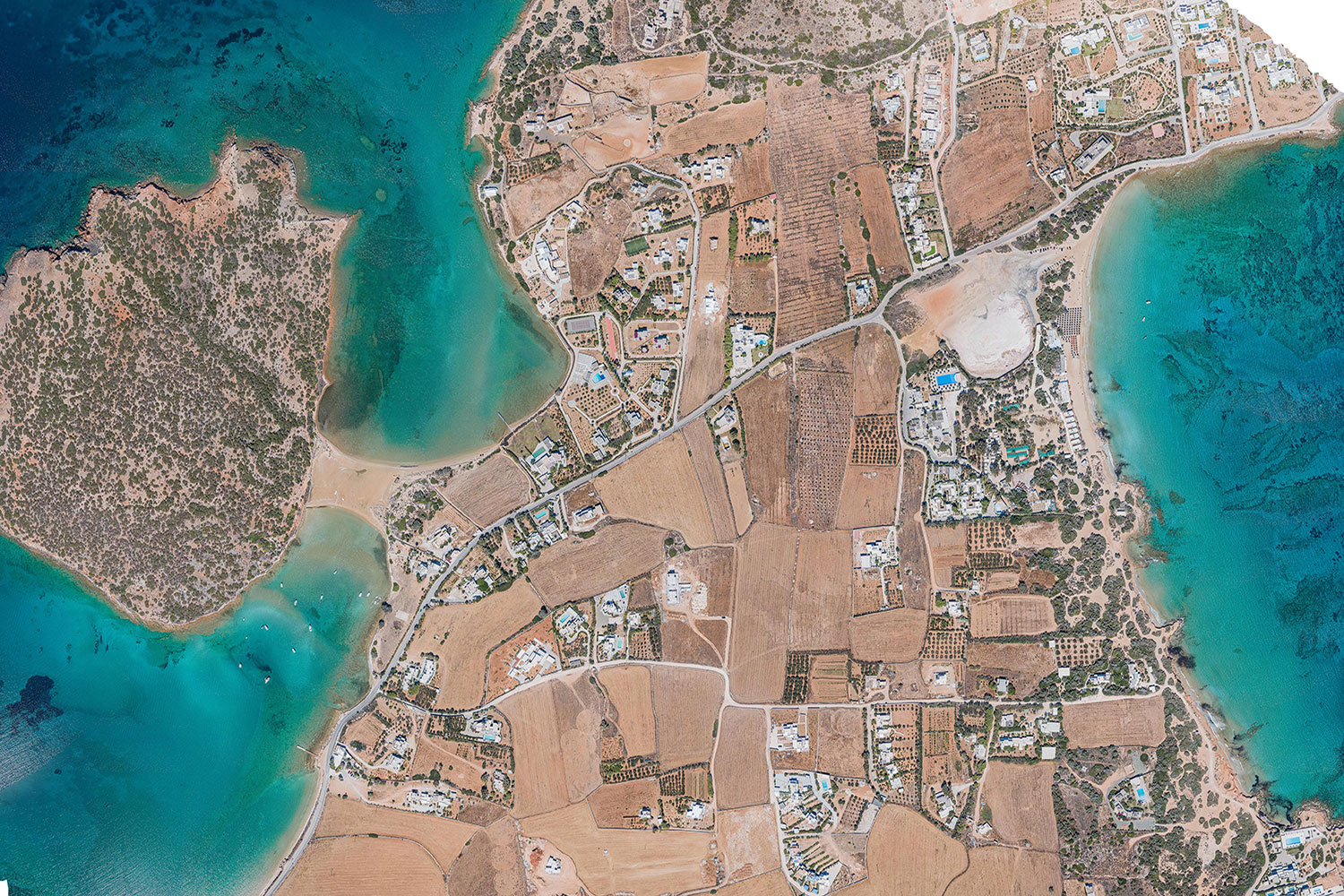
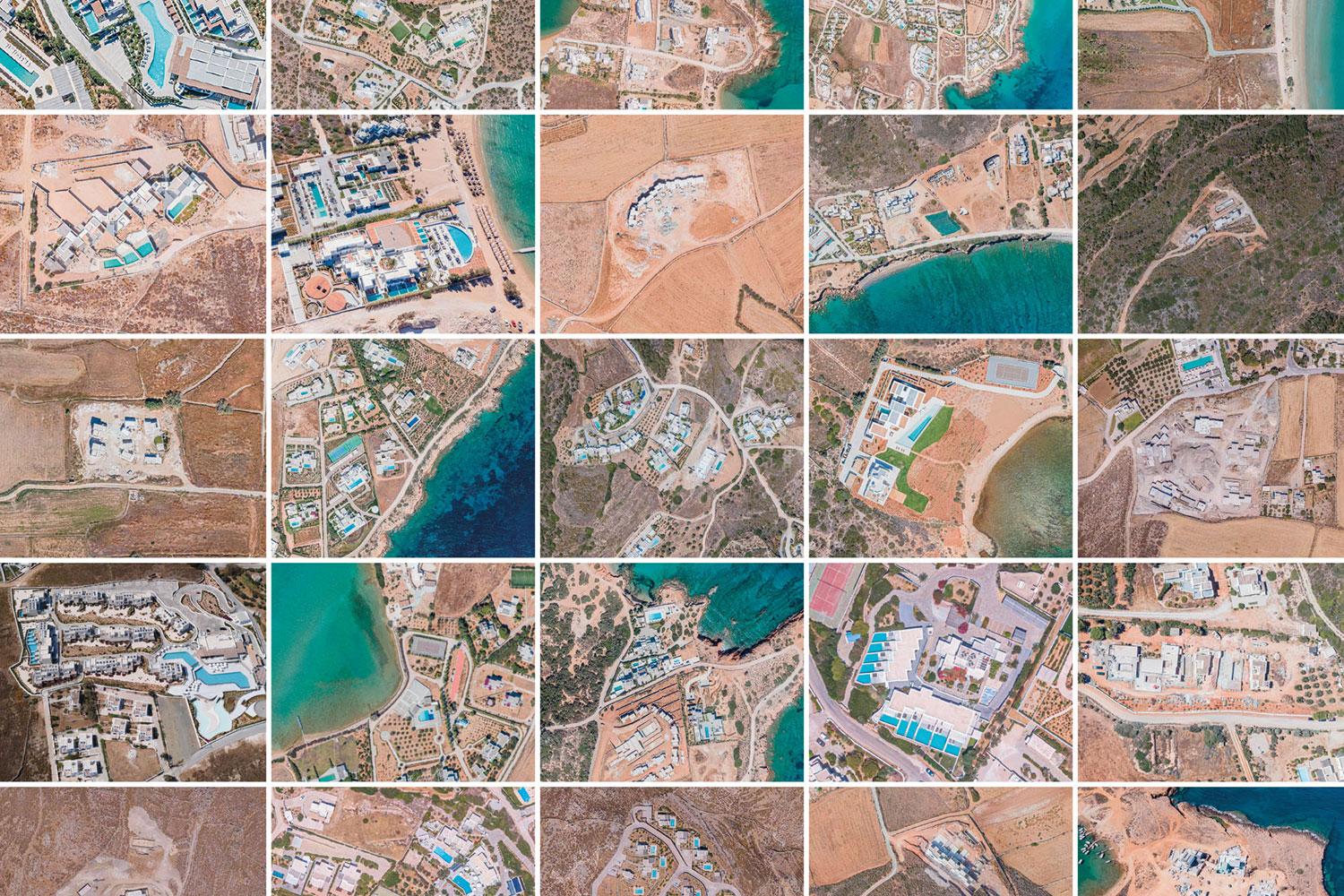
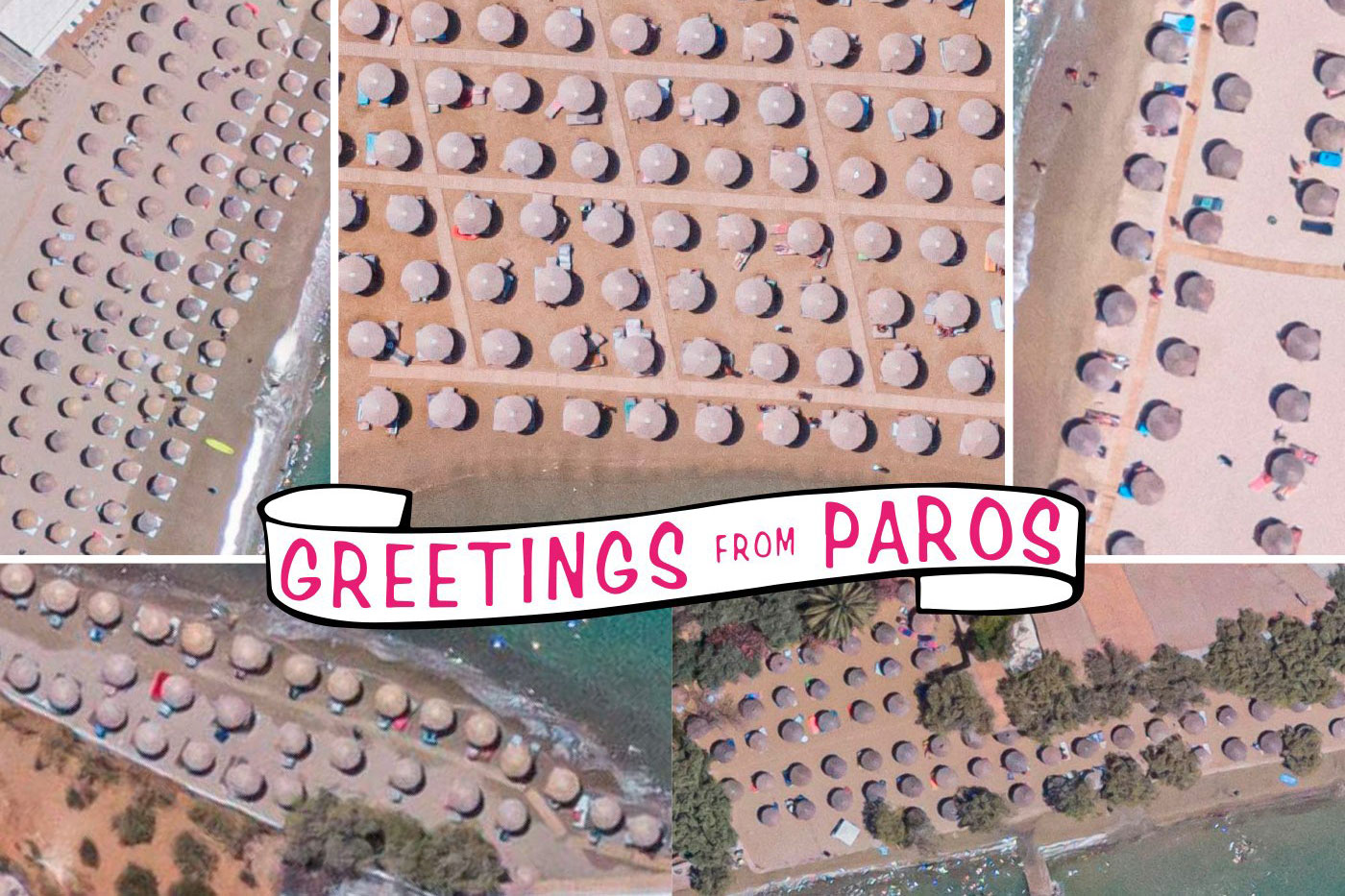
As a visitor to Paros from the UK, I have been visiting Paros for more than 50 years. I fell in love with the island as a student. As an artist it has been the subject of much of my work for this time.
But over these years I have seen so many changes and many which have slowly spoiled Paros. So much so that on my visit last year, I was so upset by what is happening to my beloved island that I don’t think I will be able to return.
Allowing international arivals at the airport is a great mistake and will change and ruin the island forever. It will be a disaster.
This article is clear and comprehensive and unless some of the issues are addressed, I fear for the residents because quick financial gain will carry a very heavy price.
Poor Paros searching it’s identity! Between greed and dream how to coordinate all the needs? 50 years ago in FRANCE we had lovely islands with about the same problems than Paros. This is how they solved it. The case of Belle Ile en Mer is interesting. 50 years ago it was a « charming » place, but poor, dirty, invaded by a « cheap tourism ». Nobody wanted a change. But the Mayor was smart!
He asked the help of
Paul Chemetov (you can Google him) a talented architecte-ingénier specialized in studying the evolution of places and proposing a structured planning to improve the Image (identity) and general situation. The first thing he asked in Belle Ile was to stop the spreading of white little houses as houses where never white in britany. His advices where carefully followed. Laws where voted. And Belle Ile found it’s identity. It took 20 years and good will. But « all we need is
Love …, but money and a man with a vision.
My heart breaks for this beautiful island and it’s people . Money isn’t everything
We first went to Paros in 1998 and it was everything we dreamed. By 2017 it became noisy and overcrowded. Please please stop all this or you will end up like Mykono full of drunken louts. The hotel and bar owners will be rich but the ordinary Parian will be poorer for it. You must stop now!
I agree with everything you say . Paros is being ruined for short term gains. It’s simply unsustainable what is going on
Thank you for the very comprehensive essay on the terrible destruction of Paros. Unfortunately I fear it is already too late. Money has privately changed hands and the deals have been struck. Large hotel owners find it economically prudent to pay the small monthly fines for blocking beach access instead of following the law, which could cost them millions. Local officials look the other way when illegal building is taking place, also sometimes for an under-the-table price. It has become so expensive for the Greeks to live on Paros that they live in almost constant economic fear and, so, they have little choice but to make as much money as they can today. In a sense they cut off their nose to spite their face. Tourism is always an unsustainable economic model and Paros is another good example. Economic fear fuels greed which, in turn, drives political corruption and economic disparity thus allowing the current climate to exist. More rentals cars, a larger airport and more “luxury” hotels that no one really needs is not a solution. At least not to the everyday Parian. They will receive no benefits from this.
Thank you for the effort in elaborating such a comprehensive and consolidated report. I had privately listed down some challenges that need to be addressed and my list matches yours to a very high degree. I’m sure most islanders can relate to these challenges but I’m not sure all of them understand the sense of urgency to act. In fact I fear there are conflicting interests with distributed powers, all hinging on a massive governance vacuum and an absent public administration of the island. Put simply, let’s say that some people’s interests depend on them not understading the impact of these problems. I hear from reliable sources Paros and Antiparos received 4000 new building permits in 2022 alone. Opening a new intl airport is going to magnify all these problems by a factor of 100. Slowing down and structuring a thought-through growth strategy seems to be the only answer indeed.
I also salute the set of steps suggested to start tackling these important issues and I’d like to personally help structuring and actioning the response initiatives. I am a healthcare professional with 30 years of global experience and I can certainly help reset the healthcare system in Paros / Antiparos with clear focus on better access to services, better outcomes (read care quality) and most of all a focus on prevention. These are long term efforts which do unfortunately not fit within one electoral cycle and thereofe counting on politicians is already a lost cause. I believe therefore most inititvatives have to be driven by the islanders / the public and only enabled by the establishment. Sustainable solutions require sustained effort and a long term engagement is a sine qua non success factor here.